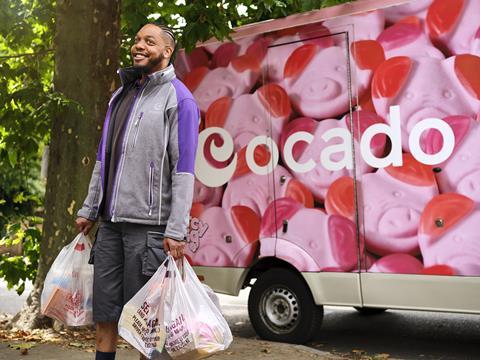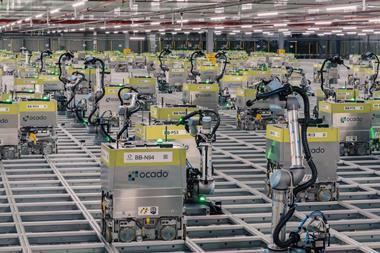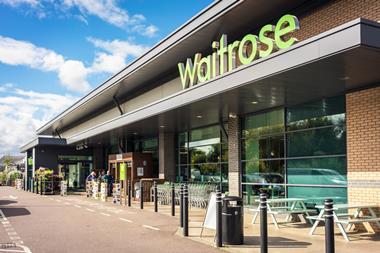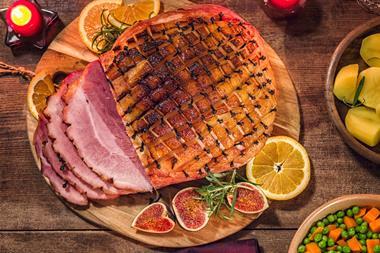
Shareholders are back on the Ocado rollercoaster in 2025 as the stock shot higher thanks to a record-breaking Christmas at the group’s online retail arm.
Revenues jumped 17.5% to £715.8m at Ocado Retail in the 13 weeks to 1 December as volumes surged 17% year on year, with average basket sizes stable and prices flat.
Hannah Gibson, the CEO of the joint venture between Ocado Group and M&S, called 2024 a year of strong growth as the business hit 500,000 orders a week for the first time at the end of November.
She attributed the performance to being “laser-focused” on customer service and delivering “unbeatable choice, unrivalled service and reassuringly good value” to households.
The group chose not to give any actual figures on the Christmas period, but said Ocado Retail registered its highest-ever level of festive sales thanks to its offer of customer favourites including the M&S party food selection, “from hot honey halloumi to pigs in blankets”.
Ocado shares raced 13% higher to 305p following the update on Tuesday morning, with investors most likely focusing on the FY25 guidance promising further “market-leading sales growth and volume momentum” while also “driving operational efficiency and scale leverage” on the group’s journey to a better EBITDA margin.
The stock, which is one of the most shorted on London’s exchange, continued to climb this week and was up 17% to 324p over the past five days. However, shares are still just flat in the year to date as it tries to claw back the lost ground of 2024, which saw Ocado drop out of the FTSE 100 as value plunged.
Long-time bear Clive Black of Shore Capital recognised the “excellent” Q4 trading and outperformance of Ocado Retail versus all rivals in the UK grocery market.
However, the lack of Christmas numbers made him suspicious that momentum may have dipped a little. “It is daft not to provide a figure, albeit we do know it offered hot honey halloumi to its customers,” Black said.
He added that focusing on EBITDA was not an enduring measure of performance, with the group needing to find a way toward profitability.
“Whilst we sound like a broken record, equity capital markets now get this point. For Ocado Group and Ocado Retail, EBITDA is only part of the story, it is EBIT and, indeed, for the former, pre-tax profits and earnings per share that really matter. Pointing out that this business listed in 2010 and was created a quarter of a century back, it still does not deliver on these key financial metrics, ones that M&S, Sainsbury’s and Tesco do not have the luxury of ignoring by the stock market.”
Russ Mould, investment director at AJ Bell, was more positive and reckoned Ocado’s M&S joint venture had finally “cracked the recipe for success”.
“There are significantly more customers and they’re shopping more frequently,” he said. “This performance should settle some nerves at Marks & Spencer given relationships have been fragile between the two partners. The key challenge is to sustain this momentum.
“Now the ship has been steadied, the big question is what happens to the joint venture longer term. Marks & Spencer is on a roll with its whole business and might take the view that it would prefer to have full control over its online food delivery service. If that happens, Marks & Spencer would still be reliant on Ocado technology and would have to pay royalties. Longer term, it could potentially look to develop systems in-house or use another partner as an alternative.
“The big unknown is whether Marks & Spencer feels the venture is sufficiently robust enough to take the leap into the unknown and go solo.”



















1 Readers' comment